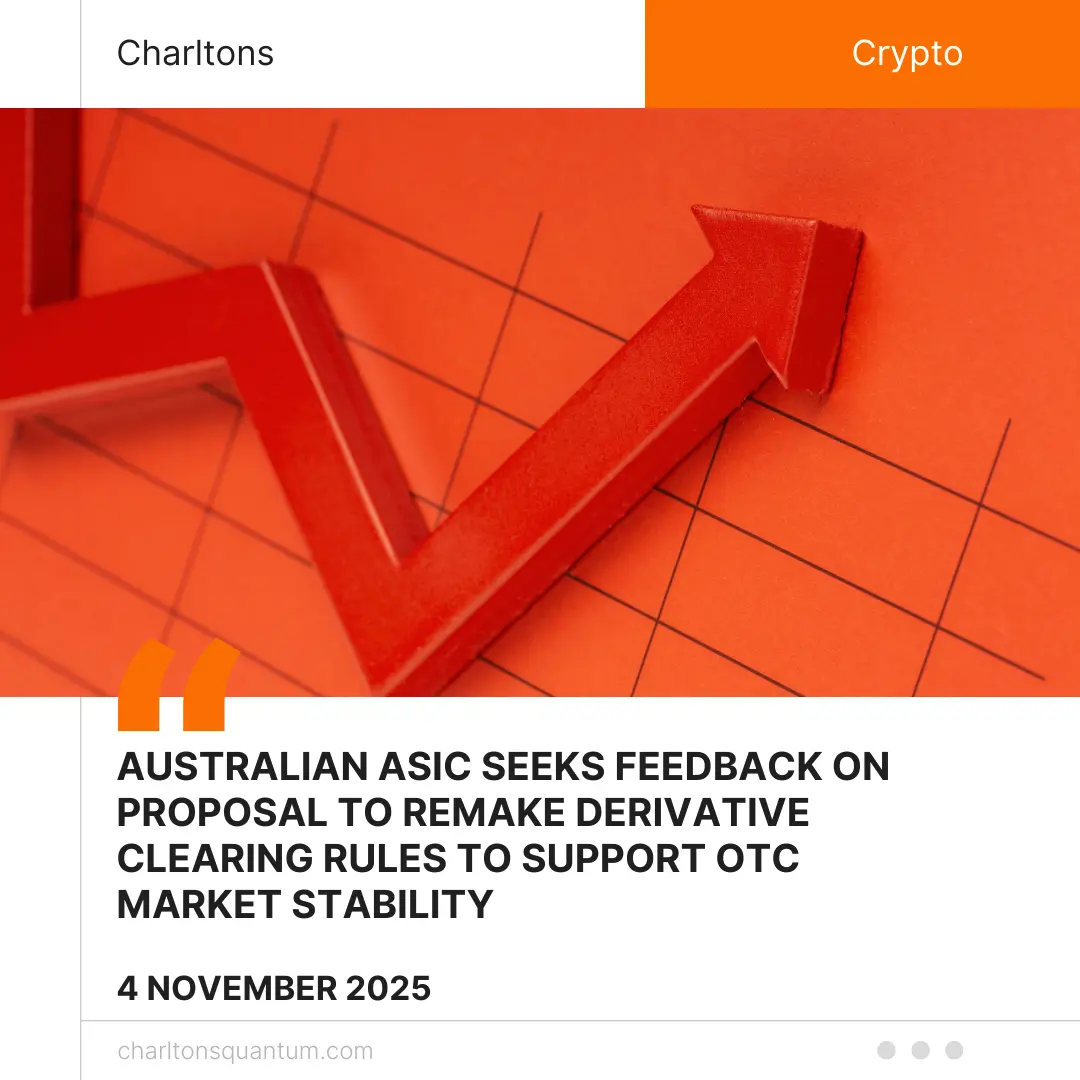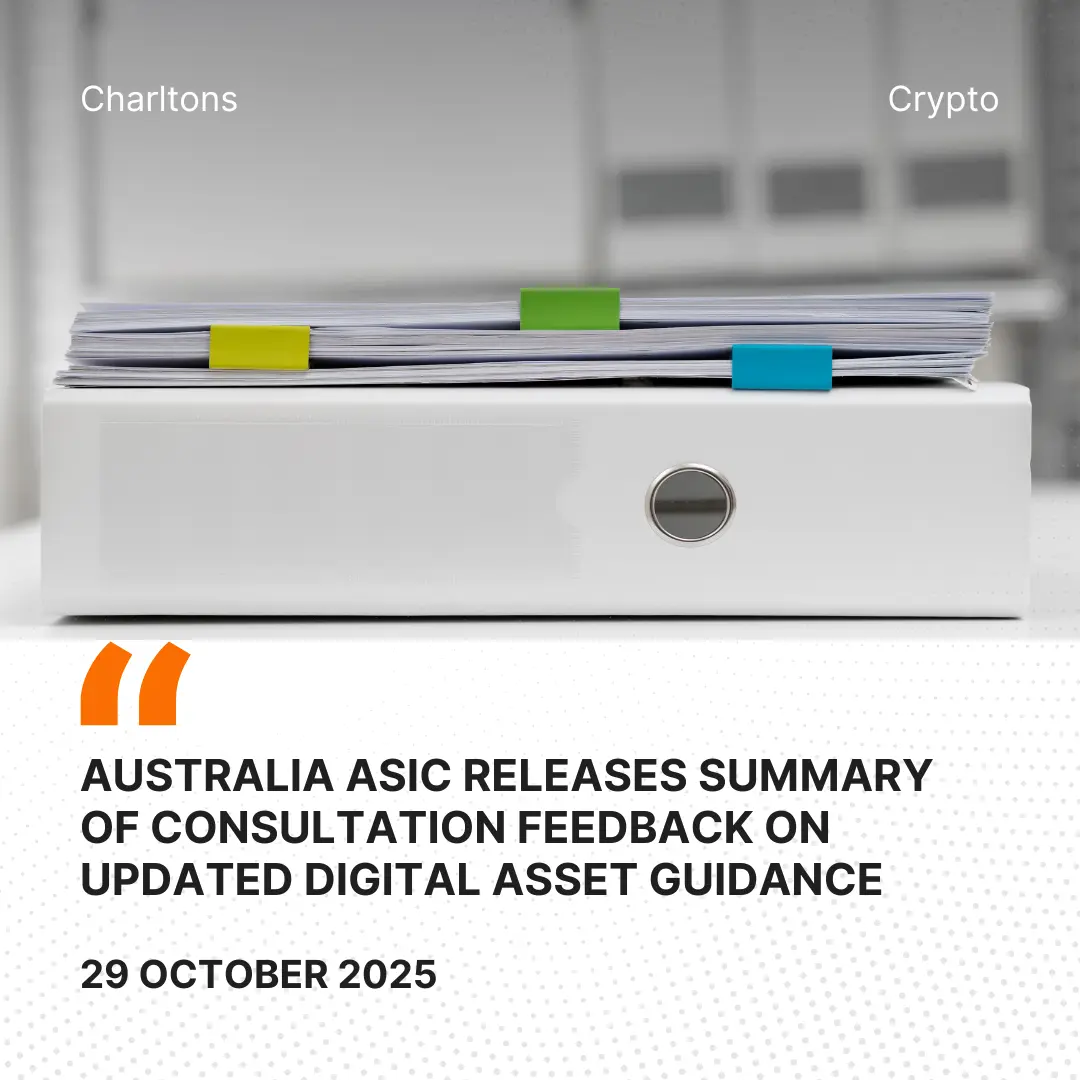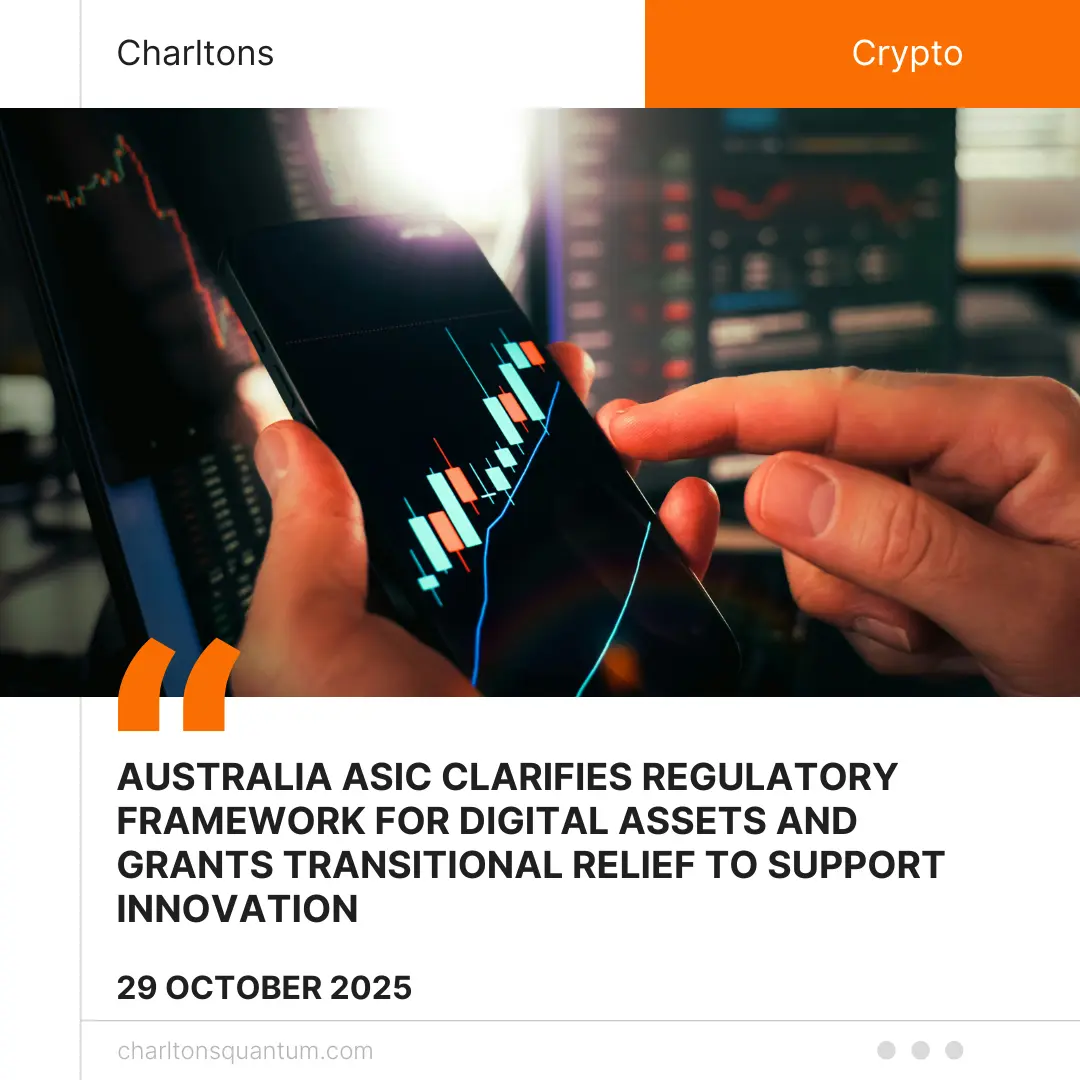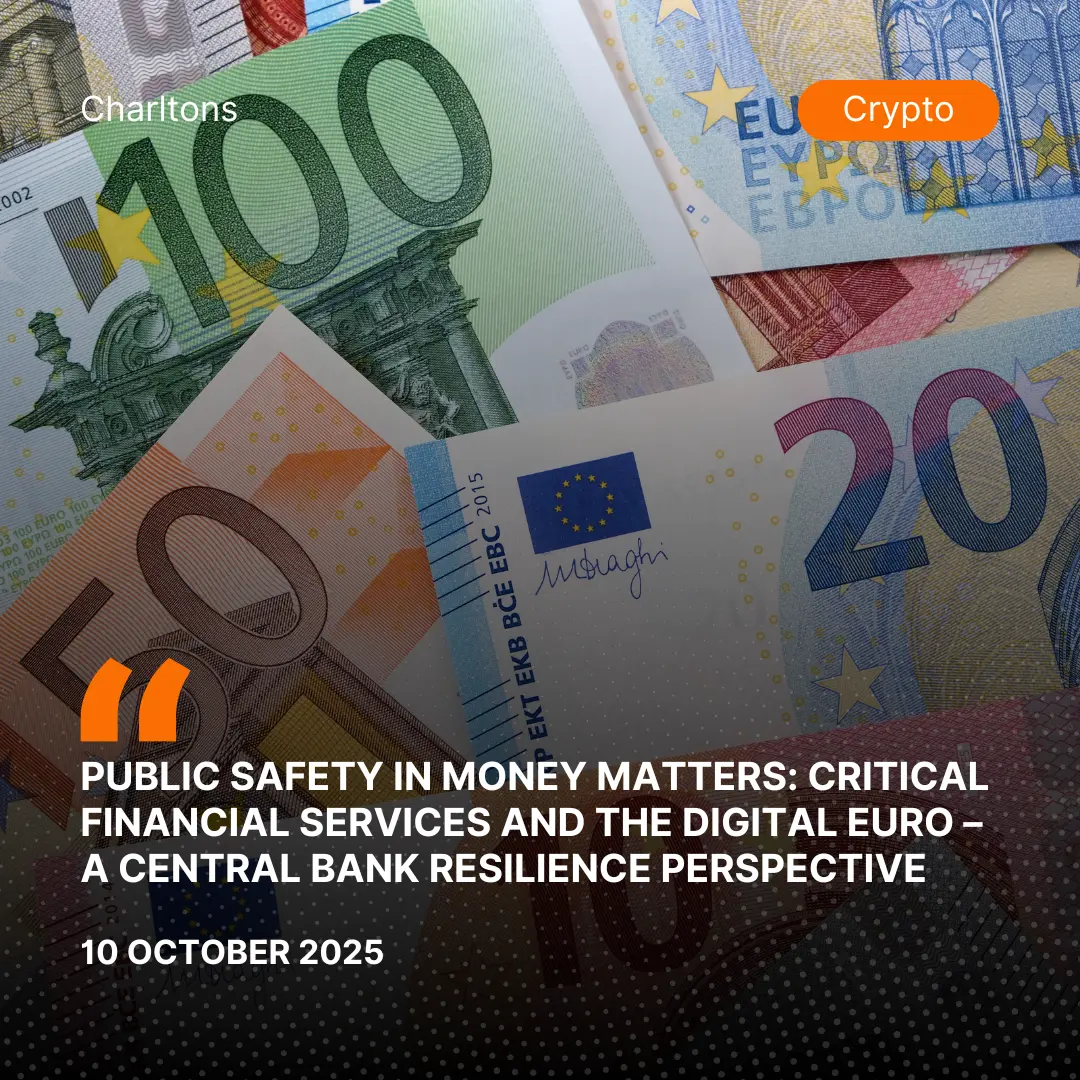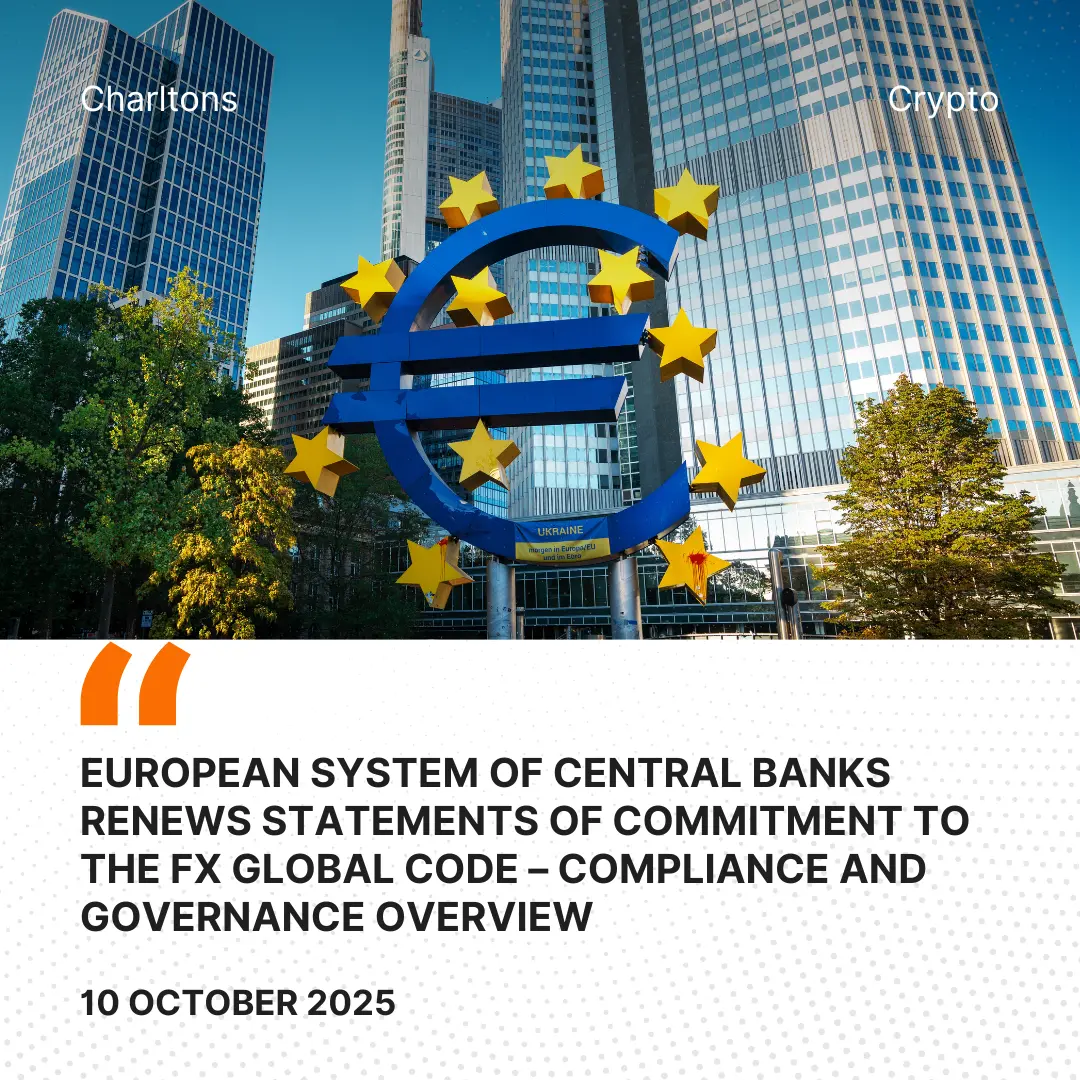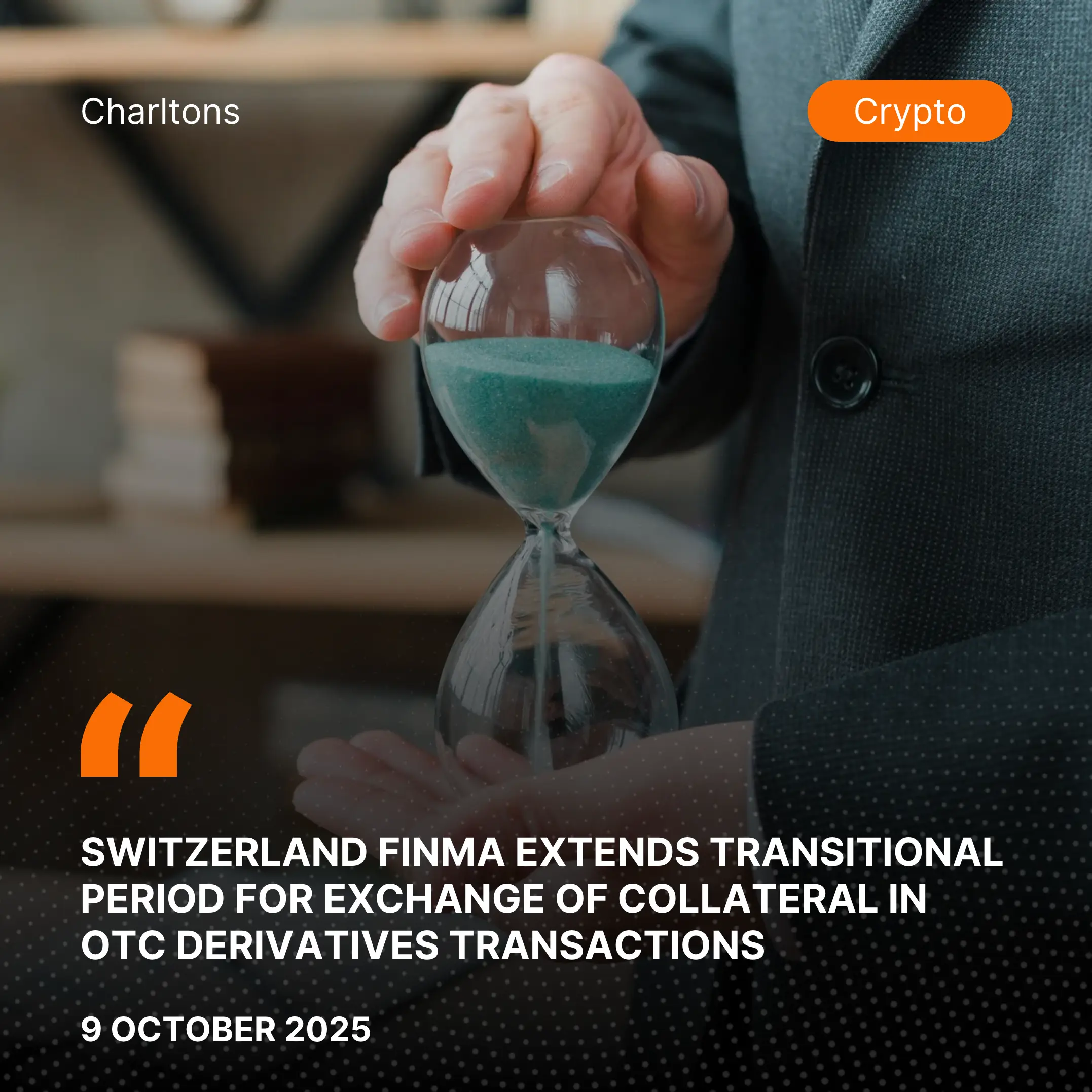Regulatory Updates
Singapore MAS and Law Enforcement Strengthen Joint Efforts Against Financial Crime
On 31 October 2025, the Monetary Authority of Singapore (MAS) announced that it is working closely with the Singapore Police Force through the Anti-Money Laundering Case Coordination and Collaboration Network (AC3N) to follow up on the ongoing case involving Prince Holding Group. The collaboration underscores Singapore’s commitment to safeguarding its financial system from illicit activities by deepening coordination between financial regulators, enforcement agencies, and financial institutions (FIs). MAS confirmed that suspicious transaction reports had been filed early, and several FIs had proactively taken risk mitigation measures, including closing suspicious accounts, thereby preventing larger sums from remaining within the financial system.
Australian ASIC Notes Cboe Global Markets’ Decision to Divest Its Australian and Canadian Operations
On 1 November 2025, the Australian Securities and Investments Commission (ASIC) acknowledged Cboe Global Markets’ decision to sell its Australian and Canadian market businesses i.e. Cboe Australia and Cboe Canada, as part of a global strategic realignment focusing on its core derivatives business. ASIC observed that Cboe had reaffirmed the strong performance of both operations and their positioning for continued growth within a supportive regulatory environment that promotes competition. The Commission confirmed that it will work closely with Cboe throughout the divestment process to ensure an orderly and transparent transition to suitable new ownership while maintaining market integrity and investor confidence.
Australian ASIC Seeks Feedback on Proposal to Remake Derivative Clearing Rules to Support OTC Market Stability
On 28 October 2025, the Australian Securities and Investments Commission (ASIC) released its proposal to remake the ASIC Derivative Transaction Rules (Clearing) 2015 (the 2015 Rules), which are due to sunset on 1 April 2026. The proposal aims to preserve the continued operation of Australia’s over-the-counter (OTC) derivatives central clearing framework and to ensure compliance continuity under the Australian Corporations Act 2001.
Australia ASIC Obtains Interim Travel Ban Against Blockchain Global Director Amid Ongoing Investigation
On 29 October 2025, the Australian Securities and Investments Commission (ASIC) announced that it had secured interim travel restraint orders against Blockchain Global Limited (in liquidation) director Zijing Xu, also known as Ryan Xu. The Federal Court of Australia issued the orders on 20 October 2025, prohibiting Mr Xu from leaving or attempting to leave Australia until 20 December 2025. ASIC sought the orders on an ex parte basis, meaning Mr Xu had not yet been heard by the Court, citing concerns arising from its ongoing investigation into the collapse of a crypto asset exchange formerly operated by Blockchain Global. The matter was initially listed for an inter partes hearing on 30 October 2025 but was subsequently varied by consent, extending the restraint until 28 November 2025.
Australia ASIC Releases Summary of Consultation Feedback on Updated Digital Asset Guidance
On 29 October 2025, the Australian Securities and Investments Commission (ASIC) published its summary of industry and stakeholder feedback to Consultation Paper 381: Updates to INFO 225 Digital Assets – Financial Products and Services (CP 381). The consultation sought industry views on ASIC’s proposed updates to Information Sheet 225 and its accompanying transitional framework for stablecoins, wrapped tokens, and digital asset intermediaries. The summary reflects input from 51 non-confidential respondents, covering financial institutions, digital asset service providers, consumer groups, and professional advisers. The feedback has informed ASIC’s decision to grant class no-action relief, extend transitional periods, and include additional examples in the updated guidance.
Australia ASIC Clarifies Regulatory Framework for Digital Assets and Grants Transitional Relief to Support Innovation
On 29 October 2025, the Australian Securities and Investments Commission (ASIC) published updated guidance clarifying the application of existing financial services laws to digital assets, reinforcing investor protection while supporting innovation in Australia’s rapidly developing digital economy. The update extends ASIC’s Information Sheet 225 Digital Assets: Financial Products and Services (INFO 225) and confirms transitional support measures ahead of proposed digital asset law reforms. Stablecoins, wrapped tokens, tokenised securities, and digital asset wallets are confirmed as financial products under existing law. ASIC also introduced a sector-wide no-action position effective until 30 June 2026 and proposed targeted relief for digital asset distributors and custodians to ensure a smooth regulatory transition. The updated guidance is positioned to align with the Australian Government’s forthcoming Digital Assets and Payments (DAP) legislative framework, providing legal certainty and operational confidence to firms across the market.
Monetary Authority of Singapore Consults on Enhanced Investor Recourse for Market Misconduct – Proposed Civil Compensation Framework
On 24 October 2025, the Monetary Authority of Singapore (MAS) issued a public consultation paper proposing a framework to strengthen investors’ ability to seek civil compensation for losses arising from market misconduct. The initiative follows recommendations by the Equities Market Review Group to boost investor protection, encourage participation in Singapore’s equities markets, and sustain confidence through better recourse mechanisms. MAS’s consultation seeks to address structural and financial barriers faced by retail investors pursuing legitimate claims, while implementing safeguards against frivolous or opportunistic litigation.
Monetary Authority of Singapore Announces Finalists for the 2025 Global FinTech Hackcelerator and FinTech Excellence Awards
On 21 October 2025, the Monetary Authority of Singapore (MAS) published the 42 finalists for the 2025 Global FinTech Hackcelerator and the Singapore FinTech Festival (SFF) FinTech Excellence Awards. The winners will be announced at the SFF FinTech Excellence Awards Dinner on 13 November 2025, celebrating a decade of pioneering achievements in financial technology.
Monetary Authority of Singapore launches BLOOM Initiative to Extend Settlement Capabilities
On 16 October 2025, the Monetary Authority of Singapore (MAS) announced the launch of BLOOM an initiative designed to enhance digital settlement capabilities across the financial industry. BLOOM, an acronym for Borderless, Liquid, Open, Online, Multi-currency, aims to enable settlement in tokenised bank liabilities and well-regulated stablecoins through standardised frameworks that manage risks and promote interoperability. Its MAS’s strategy to integrate innovation with regulatory discipline. BLOOM builds upon the foundation laid by Project Orchid, launched in 2021 to explore a digital Singapore dollar and test the supporting infrastructure. Over ten trials were conducted under Project Orchid, leading to detailed industry reports and market-ready solutions such as programmable rewards, conditional payments, and cross-border collaborations. BLOOM extends this groundwork by focusing on multi-currency settlement, cross-border applications, and wholesale financial use cases, including corporate treasury management, trade finance, and agentic payments.
Public Safety in Money Matters: Critical Financial Services and the Digital Euro – A Central Bank Resilience Perspective
On 7 October 2025, Latvijas Banka released an insightful statement titled “Public Safety in Money Matters: Critical Financial Services and the Digital Euro,” authored by Modern Payments Expert Reinis Vecbaštiks. The piece examines how payment systems—once taken for granted—become a focal point of public safety and national security during crises. Against the backdrop of geopolitical conflict, climate disruptions, and energy shortages, the central bank reaffirms its long-term policy of ensuring payment resilience through a dual focus on physical and digital continuity. The narrative also connects this operational mandate to the European Central Bank’s digital euro initiative, framing it as a natural evolution toward “resilience-by-design” monetary infrastructure. The article outlines Latvia’s strategic approach to safeguarding access to money and payments during emergencies. It describes how the central bank, together with major commercial banks (AS Swedbank, AS SEB banka, AS Citadele banka, and Luminor Bank AS), maintains “critical financial services” capable of functioning even when communication or power networks fail. The initiatives include a strengthened ATM network with priority cash replenishment, the rollout of offline card payments for essential goods, and the development of backup digital systems. These efforts are complemented by broader European initiatives to design the digital euro as a sovereign, secure, and offline-capable means of payment that remains accessible even if individual banks or private infrastructures fail.
European System of Central Banks renews Statements of Commitment to the FX Global Code – Compliance and Governance Overview
On 9 October 2025, the European System of Central Banks reaffirmed its commitment to the FX Global Code, a global standard of conduct for the foreign exchange market. The Code, first introduced in 2017 and most recently updated in December 2024, defines the principles of fairness, transparency, and integrity that underpin ethical FX market behaviour. The European Central Bank and all national central banks within the ESCB have renewed their Statements of Commitment, confirming that their internal policies and market operations comply with the revised Code. This renewal not only strengthens the integrity of the FX ecosystem but also reinforces confidence in monetary policy transmission through well-functioning financial markets.
Switzerland FINMA Extends Transitional Period for Exchange of Collateral in OTC Derivatives Transactions
On 9 October 2025, the Swiss Financial Market Supervisory Authority (FINMA) issued Guidance 04/2025, announcing an extension of the transitional period for the exchange of collateral in certain over-the-counter (OTC) derivative transactions. The current transitional period, which was due to expire on 1 January 2026, will now be extended for an additional three years until 1 January 2029. The extension applies to transactions not cleared through a central counterparty authorised or recognised by FINMA to maintain regulatory equivalence and market stability in line with evolving global frameworks.



